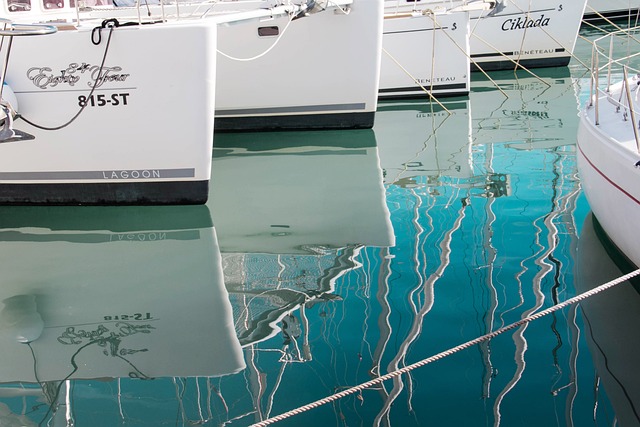Marine batteries are critical for the functionality and safety of vessels, powering essential systems such as navigation, engine starting, and onboard electronics. Unlike conventional batteries, marine batteries are specifically designed to endure the tough maritime environment, resisting saltwater corrosion, humidity, and extreme temperatures. Deep-cycle marine batteries provide steady energy output for critical systems like GPS, radar, sonar, and autopilot, and they're essential for managing energy efficiently during extended voyages. Lithium marine batteries represent a significant advancement, offering substantial weight savings by eliminating heavy lead components while maintaining robust power output. This reduces boat handling difficulties, improves fuel efficiency, and allows for more design flexibility within the vessel. These batteries are also known for their long service life, superior performance, and reliability, which are crucial for maritime operations. They offer cost savings through reduced maintenance, longer lifespans, and compliance with eco-friendly practices by avoiding heavy metals and toxic substances. Lithium marine batteries are thus a sustainable choice that not only supports environmental conservation but also offers financial benefits through lower operational costs and extended range due to their high energy density. They represent a strategic upgrade for maritime applications, enhancing both the operational efficiency and the environmental sustainability of vessels.
Navigating the high seas presents unique challenges, where power management and reliability are not just preferences but necessities. Lithium marine batteries emerge as a transformative solution, offering significant weight benefits that enhance both the performance and longevity of onboard systems. This article delves into the advantages of lithium battery technology for maritime applications, highlighting their eco-friendly and cost-effective nature, which contribute to extended service life and lower maintenance needs. From understanding marine batteries’ pivotal role in navigation to exploring their lightweight yet robust capabilities, discover how these innovations are revolutionizing the boating experience.
- Understanding Marine Batteries and Their Role in Navigation and Power Management
- The Lightweight Advantage of Lithium Marine Batteries
- Enhanced Performance and Reliability of Lithium Battery Systems for Boats
- Longer Service Life and Reduced Maintenance Requirements with Lithium Marine Batteries
- Eco-Friendly and Cost-Effective: The Sustainable and Economic Benefits of Lithium Batteries in Maritime Applications
Understanding Marine Batteries and Their Role in Navigation and Power Management

Marine batteries play a critical role in the functionality and safety of vessels, particularly in navigation and power management systems. Unlike their land-based counterparts, marine batteries must withstand challenging environmental conditions such as saltwater exposure, humidity, and temperature fluctuations. These conditions can significantly impact battery performance and longevity. Deep-cycle marine batteries are specifically designed to endure these demands, offering reliable energy storage for starting engines, powering onboard electronics, and providing emergency lighting or other critical functions.
In the realm of navigation, marine batteries ensure that GPS systems, radar, sonar, and autopilot systems operate without fail. These systems are essential for safe navigation, especially in open waters where assistance may be scarce. Furthermore, efficient power management is crucial to extend a vessel’s range and to avoid being stranded due to a depleted battery. Marine batteries contribute to this by offering stable power supplies that can handle the intermittent and varying energy demands of onboard systems. Selecting the right marine battery, considering factors like amp-hours, voltage, and reserve capacity, is imperative for optimizing performance and extending the operational life of these critical components.
The Lightweight Advantage of Lithium Marine Batteries

Lithium marine batteries offer a significant advantage in terms of weight reduction compared to traditional lead-acid batteries. Their lightweight nature stems from the lithium-ion technology they employ, which not only eliminates the heavy lead content but also minimizes the overall mass without compromising on power output. This reduction in weight is particularly beneficial for marine applications where every pound saved can translate into improved performance and fuel efficiency for vessels. The lighter weight of lithium marine batteries allows for easier handling and transportation, as well as an ability to be installed in a wider range of boats without exceeding load capacity limits. Moreover, the compact design of these batteries means they can be fitted into spaces where traditional batteries would not fit, offering greater flexibility in boat design. For anglers, sailors, and maritime enthusiasts, this means more room for cargo or a better distribution of weight, which is crucial for balance and safety at sea. The longevity and consistent performance of lithium marine batteries further enhance their value proposition, making them an excellent choice for those looking to optimize their vessel’s power system with minimal additional weight.
Enhanced Performance and Reliability of Lithium Battery Systems for Boats

Marine batteries equipped with lithium technology offer significant advantages over traditional lead-acid options, particularly in terms of enhanced performance and reliability. Lithium batteries are designed to deliver consistent power output, which is crucial for marine applications where energy efficiency and long life are paramount. Unlike their lead-acid counterparts, lithium batteries can handle high current loads without the risk of deep discharge damage, making them ideal for the demanding start-stop needs of boating environments. This not only extends the overall lifespan of the battery but also ensures that critical systems, such as navigation and communication equipment, are reliably powered during operation. Moreover, lithium marine batteries are inherently lighter than traditional options, which translates to a reduction in the overall weight of the vessel. This lightweight characteristic not only contributes to improved fuel efficiency but also enhances the boat’s performance on the water. The reduced weight allows for better distribution of load, leading to a safer and more responsive vessel. Additionally, the capacity to recharge faster than conventional batteries means that lithium marine batteries can keep up with the dynamic energy needs of boating activities, providing a consistent power supply without the need for frequent recharges or large-scale battery systems. This efficiency and reliability make lithium batteries a superior choice for today’s boaters who demand high performance and longevity from their marine battery systems.
Longer Service Life and Reduced Maintenance Requirements with Lithium Marine Batteries

When it comes to maritime operations, reliability and longevity are paramount for success. Lithium marine batteries stand out in this regard, offering a significant advantage over traditional lead-acid batteries. Their longer service life is a testament to their robust construction and advanced chemistry, which translates to fewer replacements over time. This not only saves costs associated with frequent battery changes but also ensures that vessels can rely on consistent power for extended periods. Moreover, the reduced maintenance requirements of lithium marine batteries contribute to lower operational costs and less downtime for upkeep. These batteries are designed with a built-in battery management system (BMS) that protects against overcharging, deep discharge, and balances the cells, thus enhancing their lifespan. As a result, users can spend more time on the water and less time managing their power systems. The combination of these factors makes lithium marine batteries a superior choice for those seeking high-performance, low-maintenance energy solutions in maritime applications.
Eco-Friendly and Cost-Effective: The Sustainable and Economic Benefits of Lithium Batteries in Maritime Applications

Lithium batteries offer a multitude of advantages in maritime applications, particularly in terms of eco-friendliness and cost-effectiveness. Unlike traditional lead-acid batteries, lithium batteries are free from the environmental concerns associated with heavy metal use and toxic substances. Their design minimizes pollution and reduces the carbon footprint, aligning with the maritime industry’s growing commitment to sustainable practices. This eco-conscious approach is crucial as the maritime sector navigates international regulations aimed at protecting marine environments.
Furthermore, lithium marine batteries provide significant economic benefits. Their higher energy density means they can store more power in a lighter package, which translates to lower fuel consumption for vessels. This not only extends the operational range but also reduces maintenance and operation costs over their lifespan. The longevity of lithium batteries also contributes to cost savings, as they require fewer replacements compared to conventional options. The durability and reliability of these batteries ensure consistent performance, which is paramount for the continuous operations in maritime settings. Embracing lithium technology represents a smart investment for any maritime operation looking to enhance both environmental sustainability and financial efficiency.
Marine vessels stand to gain significantly by adopting lithium batteries, which offer a host of advantages over traditional lead-acid counterparts. These include reduced weight, a crucial factor for performance and fuel efficiency, as well as enhanced reliability and service longevity. Transitioning to lithium marine batteries not only promotes environmental sustainability but also presents an economical alternative that can lower long-term maintenance costs. Boaters and maritime operators can confidently embrace these high-performance power solutions, knowing they contribute to a greener future while ensuring consistent, dependable energy for their nautical endeavors.
